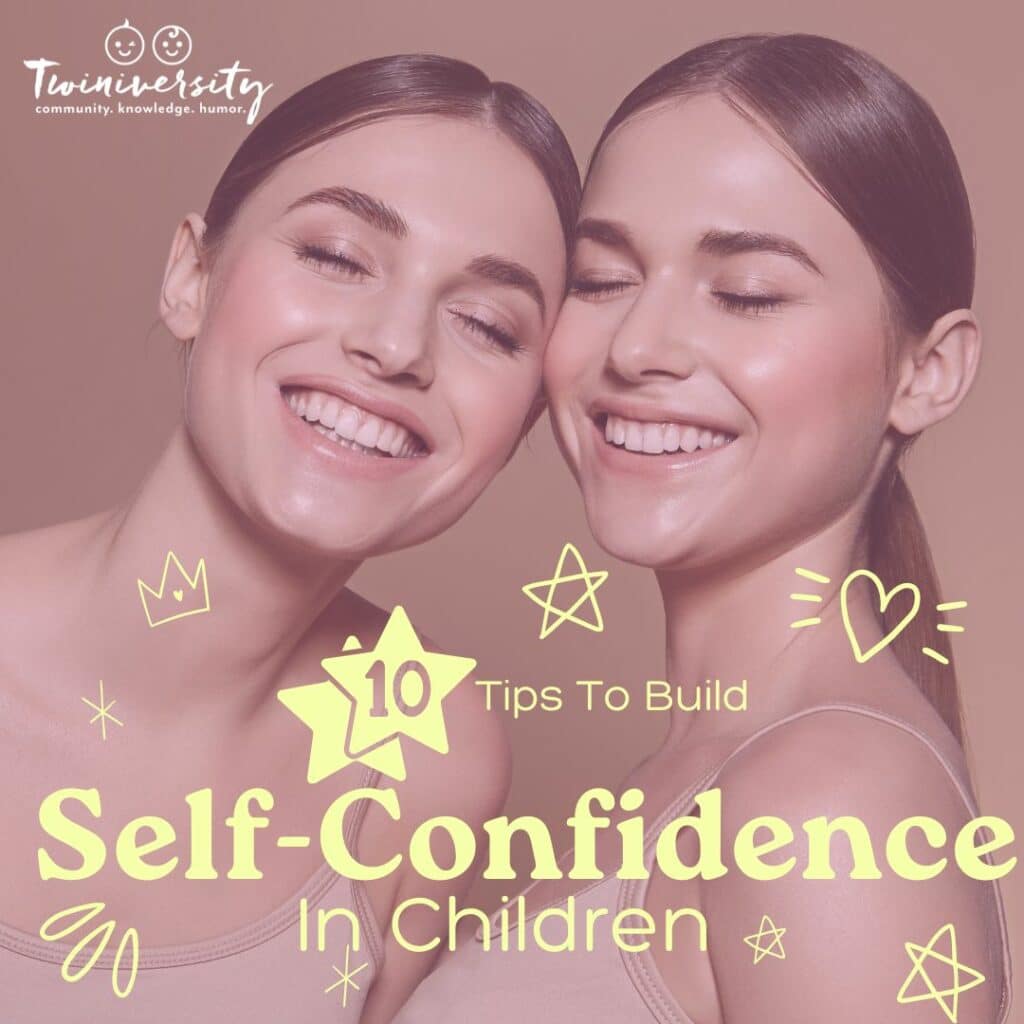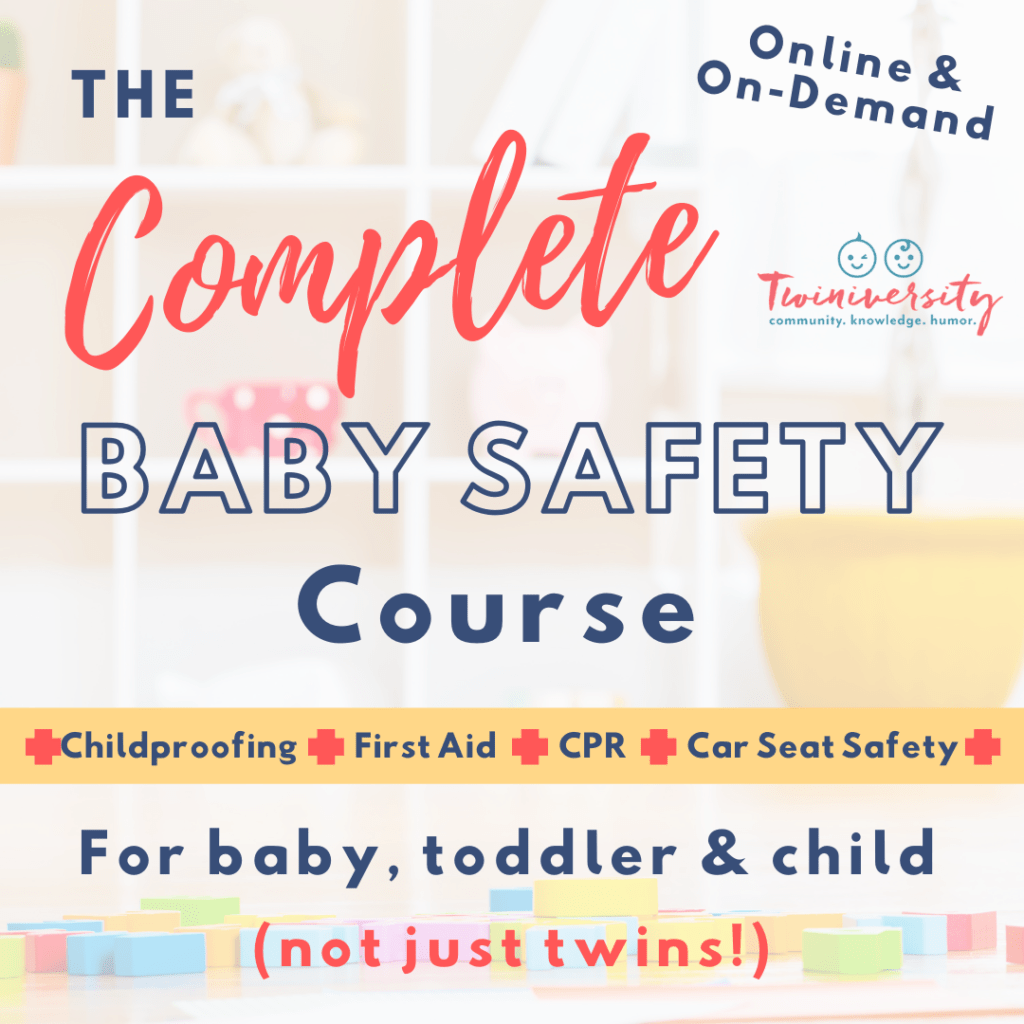Last updated on February 5th, 2024 at 12:36 pm

Do you consider yourself a secure, confident person? I’m not talking financially, are you confident in yourself? Regardless if your answer is yes or no, figuring out how to become confident or stay confident might just be one of life’s great mysteries. Since we’re on the subject of self-confidence if I can’t help myself be confident, how do I raise confident people? How do you build self-confidence in children?
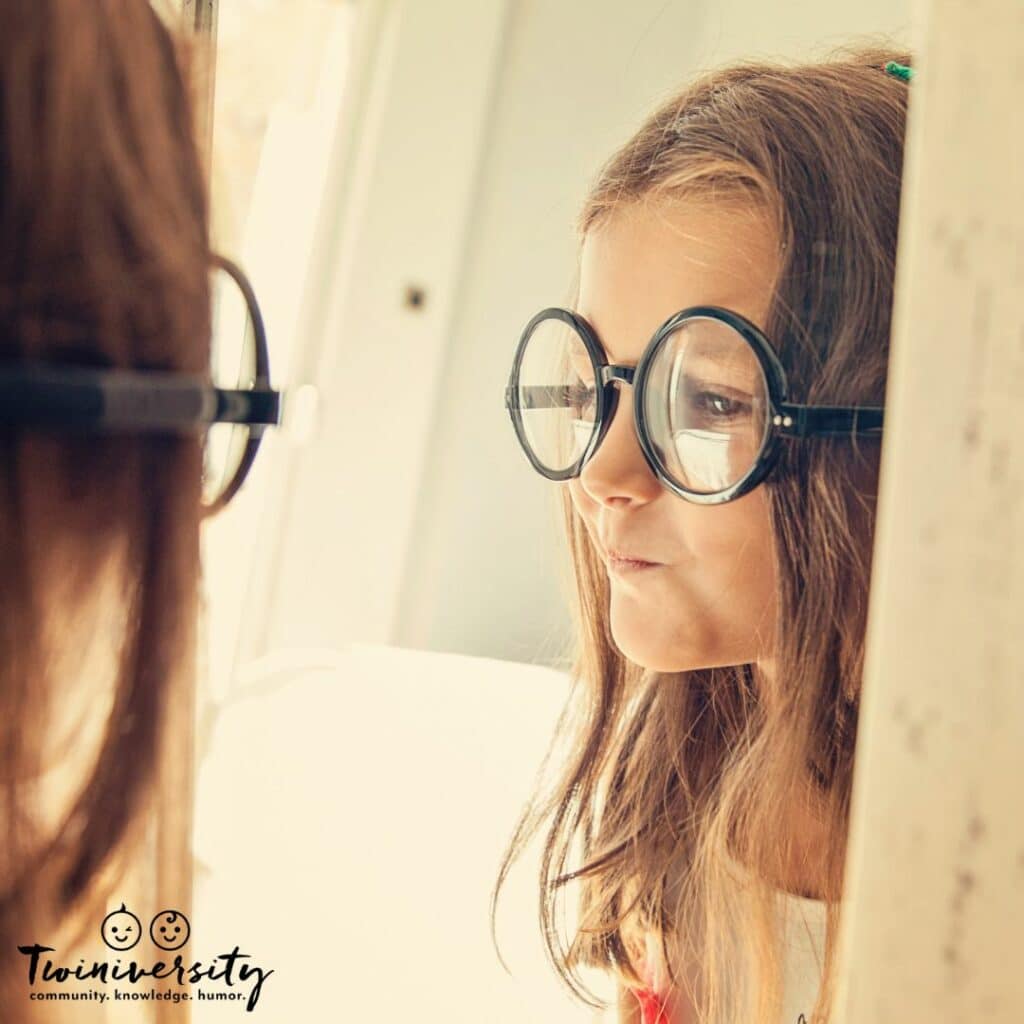
What is Self-Confidence?
Self-confidence is a feeling of trust inside of yourself. Trust in your abilities, qualities, and judgment. It is knowing that you can handle whatever situation you face and the outcome. Self-confidence in children is similar to that of an adult. However, children rely more on outside praise and interactions to play a part in their confidence levels.
Self-confidence or self-esteem is an important part of your children’s development. It can have a significant impact on their overall well-being. Self-confidence helps children to feel secure and capable in their environment, allowing them to feel safe and accepted, try new things, and take risks without fear of failure. It also allows them to trust their own instincts and make decisions independently.
When Does Self-Confidence Develop?
Emotional development and self-confidence in children are important parts of their overall growth. It helps them to understand their emotions, build relationships, and make decisions. As children grow, they learn how to express themselves and develop a sense of identity. Self-confidence is the foundation for emotional development in children. It allows them to feel secure in their environment and trust that they can handle whatever comes their way.
Confidence typically begins to develop in childhood and continues to grow throughout adolescence and adulthood. In early childhood, children start to become aware of their own abilities and limitations. They begin to understand the concept of success and failure. Ideally, as your children grow, they will learn to trust their own judgment and take risks. This is a building block to self-confidence.

Is Self-Confidence Genetically Inherited?
Research that suggests confidence is genetic is very limited and scattered with personality research. Although, a 2020 genetics study by the National Institute of Health and British Professor Robert Plomin on 15,000 sets of twins, showed that genetics play anywhere between 25% to 50% in our level of confidence.
Even at 50%, genetics is not the only factor in how self-confident a person or child is. External and environmental factors often contribute just as much, if not more than genetics.
Environmental Factors
- Parental Support: Parents play a huge role in their children’s self-confidence. A supportive and encouraging environment can help children to feel secure and confident in themselves.
- Social Interactions: Children learn how to interact with others through social interactions, which can have an impact on their self-confidence. Positive interactions with peers and adults can boost a child’s confidence.
External Factors
- Praise and Rewards: Praise and rewards can help to boost a child’s self-confidence. Positive reinforcement for good behavior or accomplishments can help children to feel secure in their abilities.
- Media Exposure: The media has a huge influence on how children view themselves and the world around them. It is important to be aware of what your child is exposed to, as it can have an impact on their self-confidence.
Just as self-confidence can be influenced by external and environmental factors, so can low self-esteem.

Got twins? Us too! The Twiniversity Podcast with Natalie Diaz was created BY parents of twins FOR parents of twins, from your pregnancy days through your twin’s teenage years, this podcast covers it all. It’s all about parenting twins, offering plenty of strategies for making life better, parenting hacks, and, of course, humor. We are laughing WITH you every step of the way.
Low Self-Esteem
Unfortunately, low self-esteem is a common issue in children of all ages.
Factors in low self-esteem can include:
- Negative self-talk
- Unsupportive family or peers
- Lack of positive reinforcement
- Unrealistic expectations
- Fear of failure
Negative experiences and interactions, such as criticism or rejection, can often lead to feelings of worthlessness and insecurity. Insecurities happen when children are unable to recognize their own strengths and abilities. They may feel inadequate or inferior compared to their peers, leading to feelings of self-doubt and low self-esteem. When a child is constantly criticized or put down by their parents or peers, they may start to believe that they are not good enough. If your child has a negative view of themselves and their abilities, this will cause them to become insecure, ultimately affecting their self-confidence.
Low self-esteem is a learned behavior, so it can be unlearned.

Why Is Self-Confidence Important?
Self-confidence is all about trusting yourself. Just like any other type of relationship, without trust, the relationship will most likely fail. Self-confident people tend to be more successful in life because they believe in themselves and their ability to achieve their goals. They are also more likely to take risks and try new things, which can lead to greater success.
A self-confident child will feel secure and capable, setting the stage for taking risks and trying new things. A child with healthy self-esteem is more likely to succeed in school, career, and healthy relationships. Self-confidence can also impact a child’s mental health. Self-esteem is an important building block for life.
Luckily, self-confidence can be a learned behavior, so it is possible to help your children build their self-confidence! Here are some practical tips for parents on how to build self-confidence in children.
Practical Tips to Build Self-Confidence
Building self-confidence in children is an important part of their development. It can help them to feel secure, capable, and independent in their environment. With the right support and guidance, children can learn to trust their own instincts and make decisions independently.
Need some twin parent friends? Get the support you need with a Twiniversity Membership. Benefits include a monthly twin parent club meeting on Zoom, access to a private Facebook group just for twin parents, and a video library of twin parenting lessons. Visit Twiniversity.com/membership to join today!
1. Avoid Over-Praise
It is essential to encourage children and make them feel good about themselves, but there is a fine line between healthy encouragement and over-praise.
When you start over-praising kids, you are setting them up for disappointment and negative emotions because they will inevitably face situations where they are not the best.
Instead of telling your child, they are the smartest or the most talented, try pointing out their specific accomplishments and strengths. This will help them to build a more realistic sense of self-confidence.
2. Avoid Helicopter Parenting
Helicopter parenting is when parents hover too close to their children, constantly monitoring their activities and offering guidance.
This can damage a child’s self-confidence because they never get the chance to experience independent success or failure.
Instead of hovering, give your children the opportunity to try new things and solve problems independently. This will help them to feel capable and confident in their abilities.
3. Encourage Kids to Take Risks
It is natural for parents to want to protect their children from failure, but it is essential to allow them to take reasonable risks.
Encouraging kids to step outside their comfort zone will help them build self-confidence.
They will learn that they can handle difficult situations and are capable of more than they ever imagined.
Taking risks also helps children to develop a growth mindset, which is essential for long-term success.
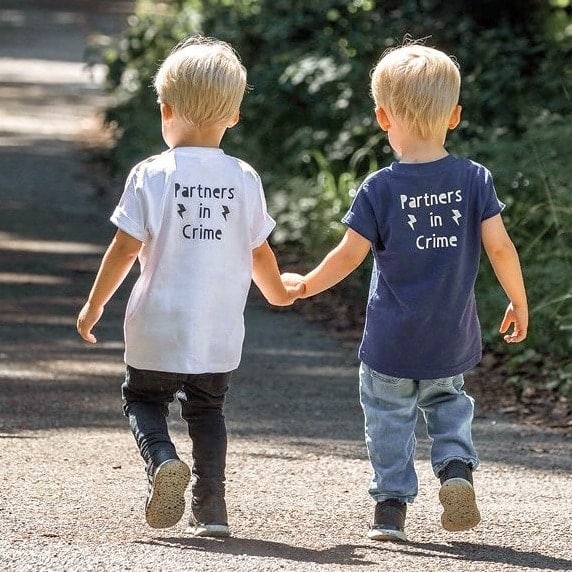
4. Let Kids Make Their Own Choices
A key part of building self-confidence is allowing children to make their own choices.
When kids can make decisions for themselves, it helps them feel in control and empowered.
Of course, some choices should be off-limits (like whether or not to eat veggies), but whenever possible, let your child choose what they want to wear, what book they want to read, or which activity they want to do.
These small choices will help them feel confident in their ability to make decisions.
5. Help Kids Identify Their Strengths
Often, children lack self-confidence because they don’t know what they are good at. It is essential to help your child identify their strengths and give them opportunities to shine.
Whether it’s in academics, athletics, or another activity, helping your child find their niche will give them the confidence to excel in that area.
6. Encourage Kids to Try New Things
Part of having self-confidence is being brave enough to try new things. If your child hesitates to step out of their comfort zone, encourage them to take risks. This could mean trying new food, joining a new club, or speaking up in class.
Helping your child expand their horizons will not only make them more confident but will also help them to discover hidden talents and interests.
Stressing out with your infant twins? Let us help! Learn what to expect in the first year with twins, including tips, tricks, and advice from real twin parents who have been there. Click here to learn more… and while you’re at it, check out our twin parent coaching services and Twiniversity shop!
7. Don’t Overreact if They Fail
When children make a mistake, it’s important not to overreact. Whether it’s a poor choice of friends, a failing grade, or simply forgetting to do a chore, your reaction will set the tone for how your child feels about the situation.
If you get angry or upset, your child is likely to feel ashamed and will be less likely to come to you with problems in the future.
Instead, try to stay calm and help your child find a solution. This will show them that you’re on their side and that you’re confident they can overcome any obstacle.
8. Encourage Positive Self-Talk
Help your child to recognize and challenge negative thoughts and replace them with positive ones. When your child says “I can’t” help them replace it with, “I can try”. They might do well and they might not, but as long as they try that is good enough.
9. Model Confidence
Children learn by example, so if you want them to be confident, you must be confident. Don’t talk negatively about yourself in front of your kids, and don’t speak in absolutes (words such as not, always, only, and never).
Maybe you’re not actually a confident person, (I’m speaking for myself) but I’ve made a point to fake it in front of my kids. Regardless of my low self-esteem and confidence issues, I do not want them to become their issues!
Show your child that you are confident in yourself and your abilities, and they will be more likely to follow suit.
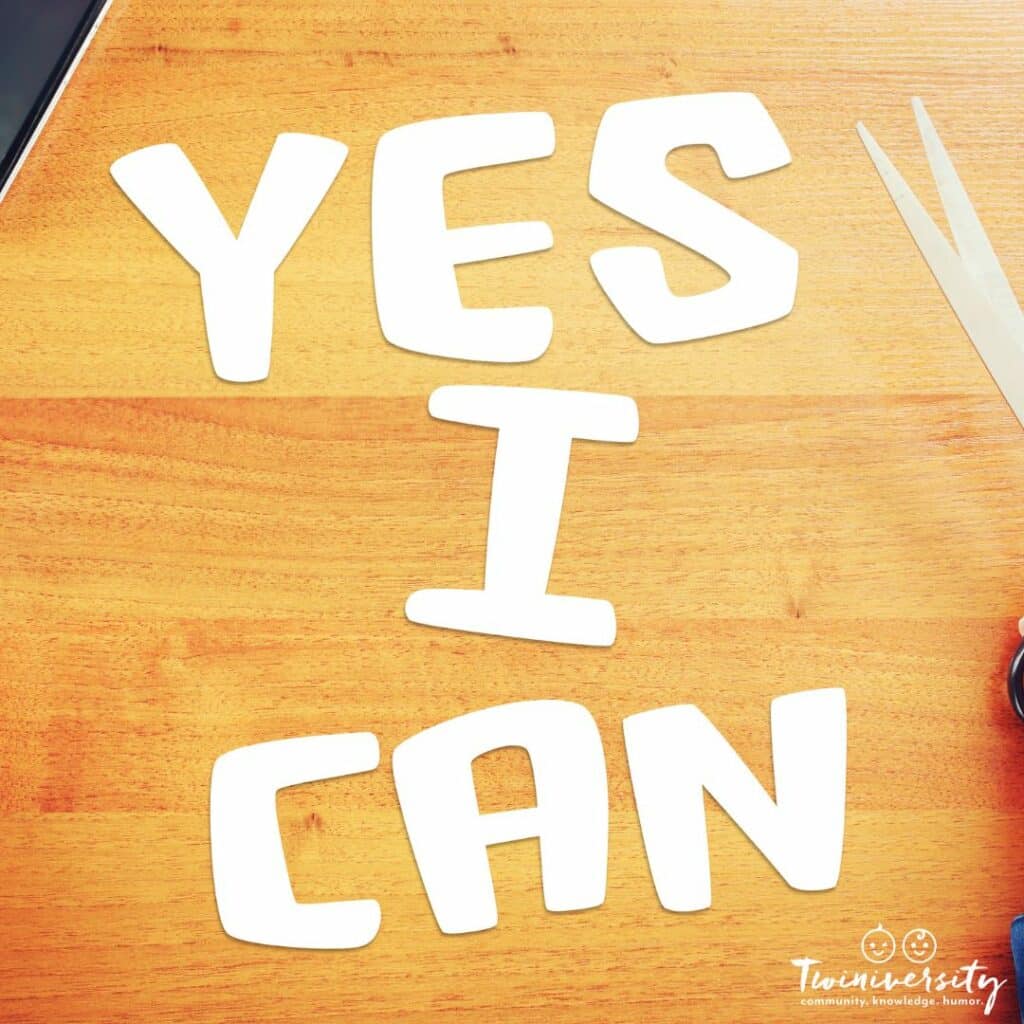
10. Provide Opportunities for Growth
When children are given the chance to explore their interests, develop new skills, and take on challenges, they gain a sense of accomplishment and pride in themselves. This can help them to feel more confident in their abilities and better equipped to face future obstacles.
One way to provide opportunities for growth is to enroll your child in extracurricular activities or classes. This can help them to explore their interests, develop new skills, and build relationships with other children.
These are just a few practical tips that you can use to build self-confidence in your children. By creating a supportive and encouraging environment, you can help your child feel good about themselves and become the best they can be.
The Benefits Of Having Self-Confidence
There are many benefits to having self-confidence. Here are the three most important ones:
1. Improved Academic Performance
It’s well-known that students who believe in themselves do better academically than those who don’t. If you have self-confidence, you’re more likely to take on challenging coursework, believe that you can master difficult concepts, and persevere when the going gets tough. As a result, you’re more likely to achieve your academic goals.
2. Enhanced Career Success
Confidence is also critical for career success. Employers are looking for candidates who are sure of themselves and their abilities and can sell themselves in an interview. Once you land a job, self-confidence will help you to navigate office politics, ask for promotions and raises, and take on new challenges. In short, self-confidence is essential if you want to get ahead in your career.
3. Greater Life Satisfaction
People who have self-confidence tend to be happier and more satisfied with their lives than those who don’t. That’s because they feel good about themselves and their abilities and are more likely to go after their dreams. So if you’re looking for a recipe for happiness, self-confidence is a key ingredient.
Need some baby safety training? Take the Twiniversity Complete Baby Safety course, offered on-demand. Includes video modules on infant, toddler, and child CPR, first aid, and common medical ailments, plus car seat installation and safety and childproofing your home. Click here to learn more!
Self-Confidence in Twins
Twins often share a unique bond, and this can extend to their self-confidence. Twins may be more likely to feel secure in themselves because they have someone who understands them and is always there for them. They may also be more likely to take risks and try new things because they have the support of their twin. Twins are also more likely to trust their own judgment because they have someone their same age who shares the same experiences and perspectives.
Overall, twins can benefit from having a strong bond and understanding of each other. This can lead to increased self-confidence, as they are able to recognize their own unique abilities and talents. Additionally, twins may be more likely to take risks and try new things because they have the support of their twin. Finally, twins may be more likely to trust their own judgment because they have someone who shares the same experiences and perspectives.

Low Self-Esteem in Twins
Low self-esteem in twins is often a result of being compared to each other, either directly or indirectly, by parents, teachers, and peers. Twins may be expected to have the same interests and abilities, which can lead to feelings of inadequacy if one twin feels they cannot measure up to their sibling. Additionally, twins may feel like they are competing, which can lead to feelings of jealousy and resentment.
To combat low self-esteem, it is important for twins to focus on their individual strengths and accomplishments. It is also important for them to remember that they are two people with different interests and abilities. Additionally, parents and teachers must recognize each twin’s unique qualities and encourage them to pursue their own interests. It is important for twins to take time for themselves and practice self-care.
Some people are naturally self-confident, while others have to work a little harder to build their confidence levels. However, even the most confident people have moments of self-doubt. The key is not to let those moments get the best of you.
Want to be the first to know about giveaways, deals, and more just for twin parents? Sign up for the Twiniversity email list! Subscribe today to get emails about giveaways, events, weekly article roundups, and more! Pregnant with twins? We’ll be sending you a weekly twin pregnancy email to keep you on track with your pregnancy to-do list! Click here to learn more… and while you’re at it, check out our Complete Baby Safety Course and Twin Parent Memberships.
Feeling inadequate can be a major obstacle to success in life. It can lead to low self-esteem, lack of motivation, and difficulty taking risks. Parents can help their children overcome feelings of inadequacy by providing them with positive reinforcement when they do something well, offering opportunities to learn new skills, and modeling self-confidence themselves. Encouraging children to set and achieve goals, take risks, try new things, and celebrate their successes, provides them with the support they need to reach their goals. With these steps, parents can help their children build strong self-confidence and set them up for success in life.
Finally, it is important to remember that self-confidence is not something that can be achieved overnight. It takes time and effort to build self-confidence, but it is worth the effort in the long run.

